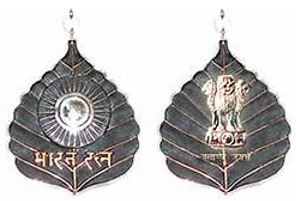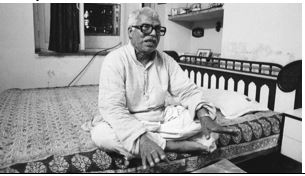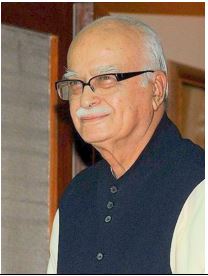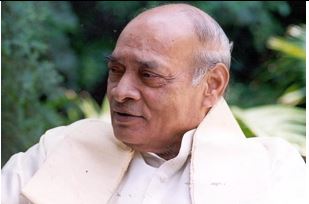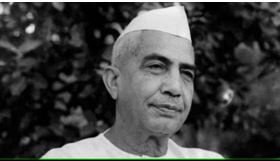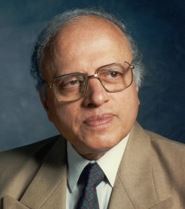

Context
The Centre announced Bharat Ratna for former Prime Ministers PV Narasimha Rao and Chaudhary Charan Singh, alongside agricultural scientist MS Swaminathan. Earlier Karpoori Thakur and Lal Krishna Advani were announced to be conferred with India’s highest civilian award.
What is Bharat ratna?
- The Bharat Ratna is the highest civilian award of the Republic of India.
- Instituted on 2 January 1954, this prestigious award is conferred in recognition of “exceptional service/performance of the highest order”, without distinction of race, occupation, position, or gender.
- Initially limited to achievements in the arts, literature, science, and public services, the criteria were expanded in December 2011 to include "any field of human endeavor".
- Recommendations for the award are made by the Prime Minister to the President.
- Recipients receive) a Sanad (certificate) signed by the President and a peepal leaf-shaped medallion, with no monetary grant associated with the honor.
- The Bharat Ratna recipients rank seventh in the Indian order of precedence.
|
Brief background
|
Contribution and profile of persons conferred Bharat Ratna 2024
|
Bharat Ratna Awardees |
Important Contributions |
|
Karpoori Thakur (Posthumous) (politician and former Bihar chief minister) (1924-1988) |
|
|
Lal Krishna Advani (politician and former deputy prime minister) (1927) |
|
|
Pamulaparthi Venkata Narasimha Rao (Posthumous) (former Prime Minister of India) (1921-2004) |
|
|
Chaudhary Charan Singh (Posthumous) (former Prime Minister of India) (1902-1987) |
|
|
Mankombu Sambasivan Swaminathan (Posthumous) (agriculture scientist) (1925-2023) |
|
A tribute to agricultural titans:
- Chaudhary Charan Singh (1902-1987)
- Born in a small village of Nurpur in the Meerut district of Uttar Pradesh, Chaudhary Charan Singh went on to serve the nation as the 5th Prime Minister. He played a pivotal role in uplifting the most important strata of our society- farmers.
- Known for his advocacy of peasant rights and agrarian reforms, Charan Singh played a significant role in shaping India's agricultural policies and championing the cause of farmers.
- Tenure as PM: He served as the Prime Minister of India for a brief period from July 1979 to January 1980.
- Addressing challenges of agriculture: Charan Singh's tenure as Prime Minister in 1979 was marked by efforts to address the challenges facing India's agricultural sector, including inflation, food shortages, and farmer grievances.
- Despite the brevity of his term, he introduced several measures aimed at alleviating the plight of farmers, such as
- Loan waivers
- Price support mechanisms
- Agricultural subsidies
- His efforts led to the enactment of crucial land reform bills, such as the Department Redemption Bill of 1939 and the Land Holding Act of 1960, which aimed to address issues of land distribution and agricultural sustainability.
- He was a staunch advocate of land reforms, tenant rights, and equitable distribution of agricultural resources.
- His dedication to the welfare of farmers earned him the title of 'Kisan Leader' or 'Champion of Farmers.'
- He passed away in May 1987, leaving behind a lasting legacy as a champion of farmers' rights and a stalwart defender of agrarian interests.
- Reservation for Sons of Cultivators
- Reservation: Chaudhary Charan Singhin a document titled ‘Why 60% of Services Should Be Reserved for Sons of Cultivators’ advocated on guaranteeing representation for the “sons or dependents of the actual tillers of the soil” in government jobs and seats in publicly-funded educational institutions.
- Singh was Union home minister in the Morarji Desai government that appointed the Backward Classes Commission under B.P. Mandal in January 1979.
|
Its report submitted in December 1980 led to the announcement of 27% reservations for OBC (other backward classes) communities, in addition to the existing 22.5% for Scheduled Castes and Scheduled Tribes (SC/ST), in August 1990. |
- S. Swaminathan (1925-2023)
- Mankombu Sambasivan Swaminathan (M.S. Swaminathan), is known as the Father of Green Revolution in India.
- Born in Kumbakonam on August 7, 1925 to M.K. Sambasivan, a surgeon, and Parvati Thangammal, Swaminathan had his schooling there.
- His keen interest in agricultural sciencecoupled with his father’s participation in the freedom movement and Mahatma Gandhi’s influence inspired him to pursue higher studies in the subject.
- Important Positions held by M.S. Swaminathan:
- In 1954, Dr. Swaminathan joined the Central Rice Research Institute (CRRI), Cuttack and later, IARI.
- In 1966, he became IARI Director, the post he held till 1972.
- He became Director General of the Indian Council of Agricultural Research (ICAR).
- In 1979, he was made the Principal Secretary, Union Ministry of Agriculture and Irrigation.
- In 1980, he was appointed Member (Agriculture, Rural Development, Science and Education), Union Planning Commission, and, for a few months, he served as the Deputy Chairman of the body.
- Swaminathan was a nominated member of the Rajya Sabha from 2007 to 2013.
|
Swaminathan Commission
|
- Awards & Recognition:Swaminathan was a recipient of the Padma Shri in 1967. He was chosen for the Ramon Magsaysay award for community leadership in 1971. He was awarded the Padma Bhushan in January 1972.
- In 1987, he became the first to get the World Food Prize and the first foreigner to receive the Golden Heart Presidential Award of Philippines.
- The first World Agriculture Prize, instituted by the Indian Council of Food and Agriculture, was given to him in October 2018.
What is the role of Dr. Swaminathan in Green Revolution?
- Background:In 1960s, India was on the verge of a mass famine.
- Green Revolution turned the northern states of Punjab and Haryana into breadbasket for wheat and rice production, helping low-income farmers.
- Swaminathanworked closely with two Union Agriculture Ministers, C. Subramaniam (1964-67) and Jagjivan Ram (1967-70 & 1974-77) for the success of the ‘Green Revolution’.
- Swaminathan along with Norman Bolaugand other scientists developed high-yielding varieties (HYV) of wheat and later, promoted sustainable development which he called, the 'evergreen revolution'.
- Green Revolution paved the way for quantum jump in productivity and production of wheat and rice through adaptation of chemical-biological technology.
